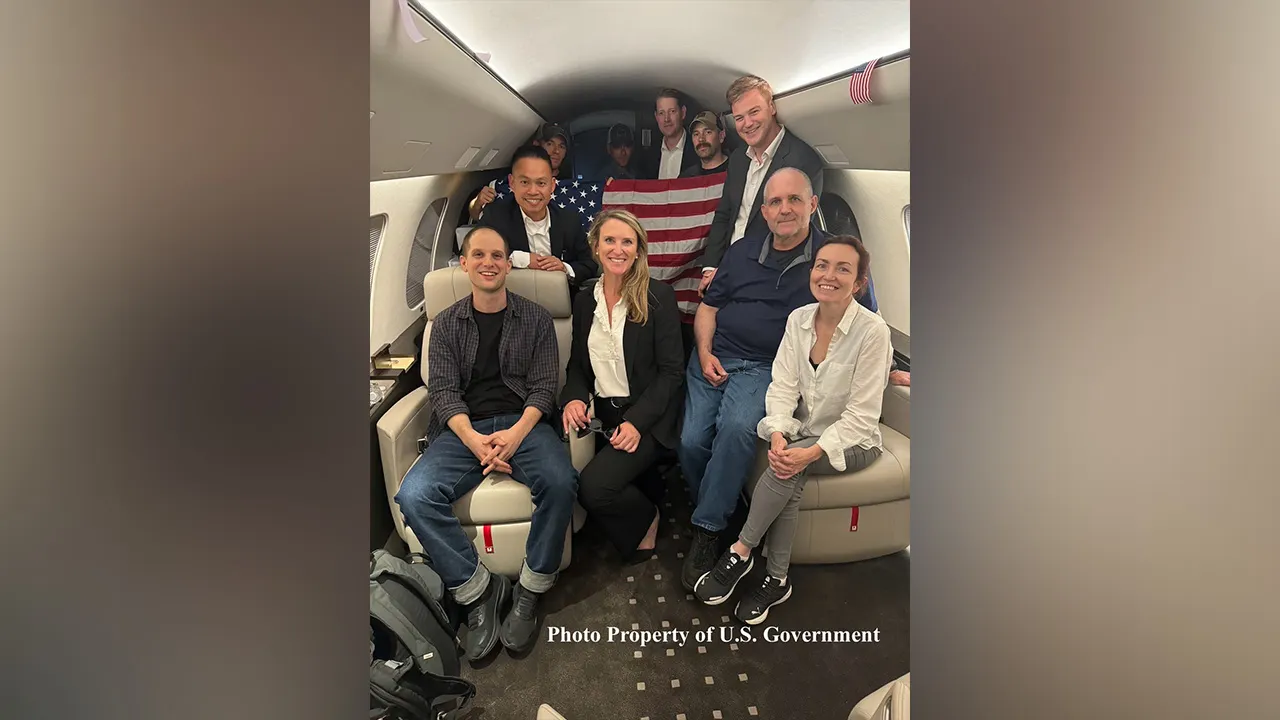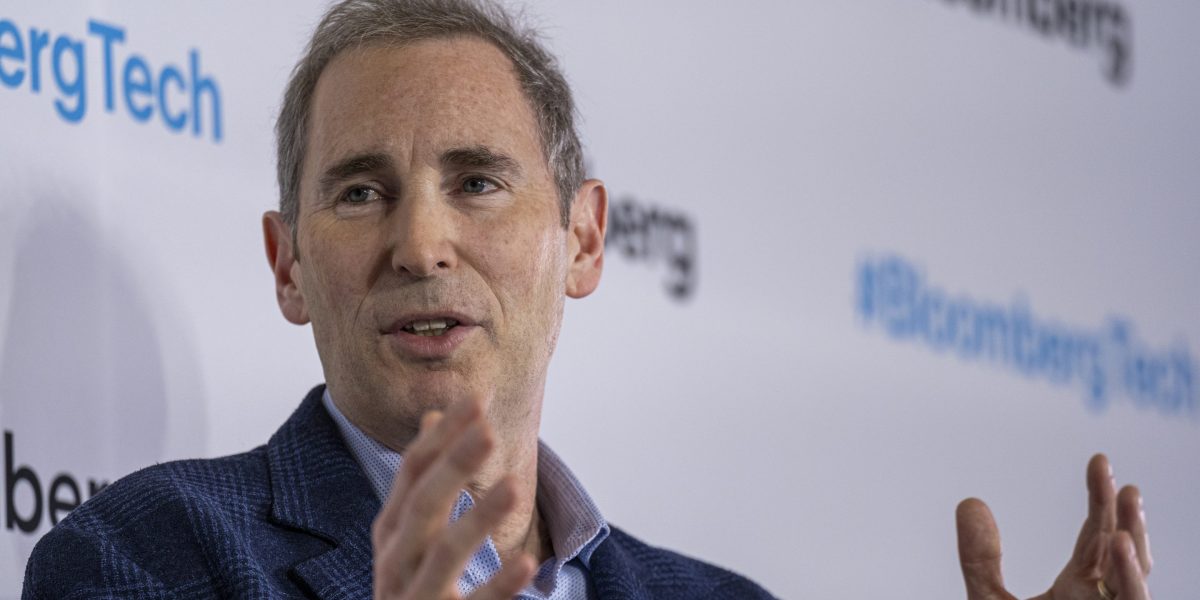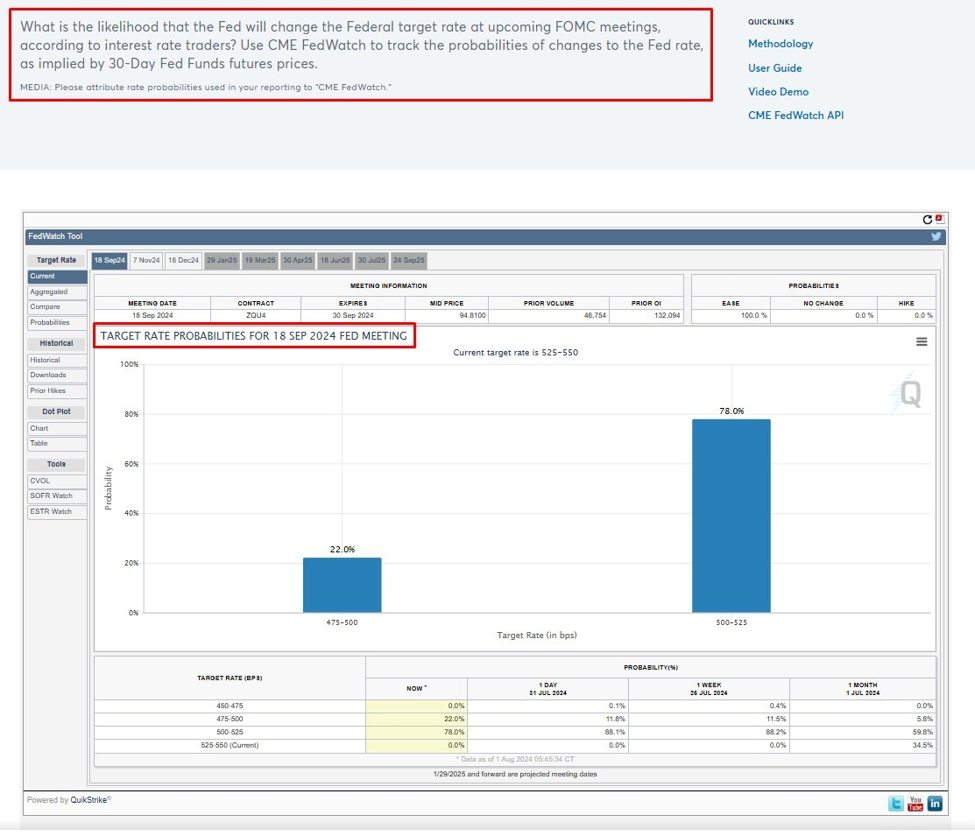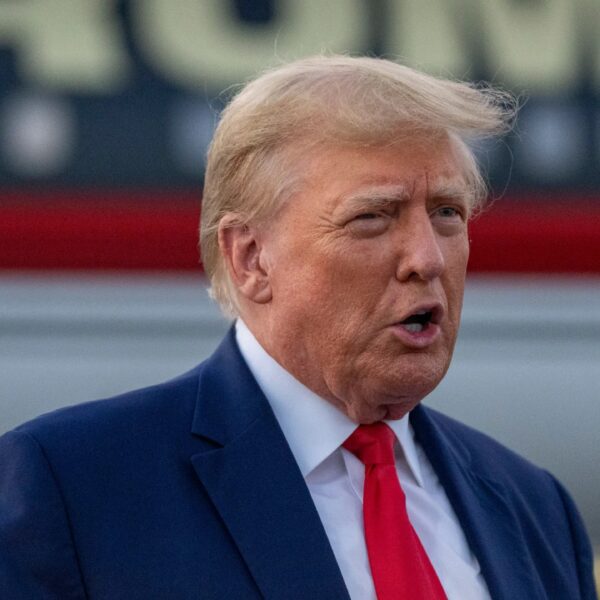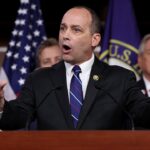After 16 months in a Russian prison, Evan Gershkovich was released Thursday in the largest prisoner swap since the Cold War, orchestrated by the Biden administration.
Almost two weeks ago, Biden announced to the world he was dropping out of the presidential race and endorsing Vice President Kamala Harris. But just before he made that decision, the president made a call to his Slovenian counterpart urging them to make final arrangements to get the historic prisoner exchange over the line.
That swap included Gershkovich, former Marine Paul Whelan and Russian-American journalist Alsu Kurmasheva, along with legal permanent resident Vladimir Kara-Murza. In exchange, Vladamir Putin insisted his hit man Vadim Krasikov, be released back to Russia.
Krasikov used the cover name Vadim Sokolov and was convicted by a German court for the 2019 assassination of a former Chechen commander near Berlin’s parliamentary building. He was in German custody.
PUTIN HIT MAN SEEN AS RUSSIA’S BIG PRIZE IN PRISON SWAP: ‘HIGH-VALUE ASSET’
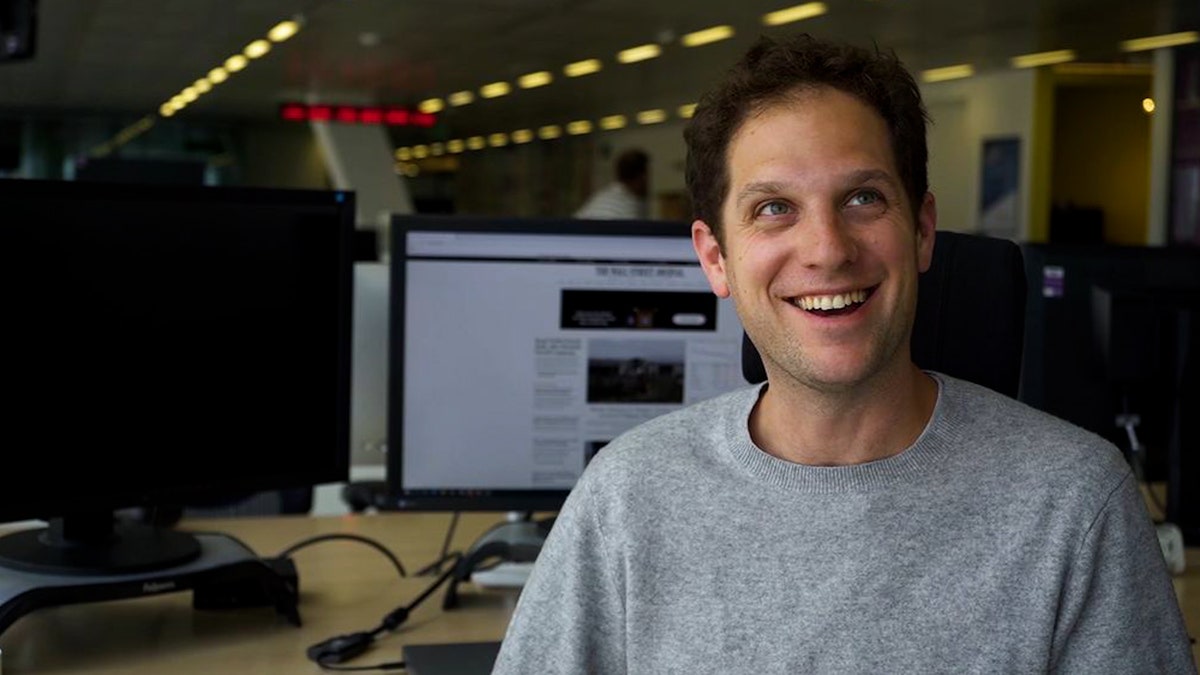
Wall Street Journal reporter Evan Gershkovich was released from Russian prison Thursdsay in a historic prisoner swap. (WSJ)
President Biden had to convince German Chancellor Olaf Scholz to ultimately agree to Krasikov’s release. The government of Turkey facilitated the transfer of the prisoners.
“I don’t think anybody here on the US side has a full, complete, contextual picture of why Krasikov was treated with the priority that he was by the Russian side,” a senior administration official told Fox News.
“I mean look, FSB [Federal Security Service] connection, paid assassin, ordered by the Russian Government to conduct the assassinations that he did… this is a bad dude, and a member of the Russian intelligence services. They obviously considered him an asset and wanted him back, and it was no small thing for the German government to let him go,” the official said.
“Lots of tough calls throughout this exchange and certainly Krasikov was one of the tougher calls leaders had to make,” another official said.
BIDEN CALLS RUSSIA PRISONER SWAP DEAL THAT FREED WSJ’S GERSHKOVICH, WHELAN A ‘FEAT OF DIPLOMACY’
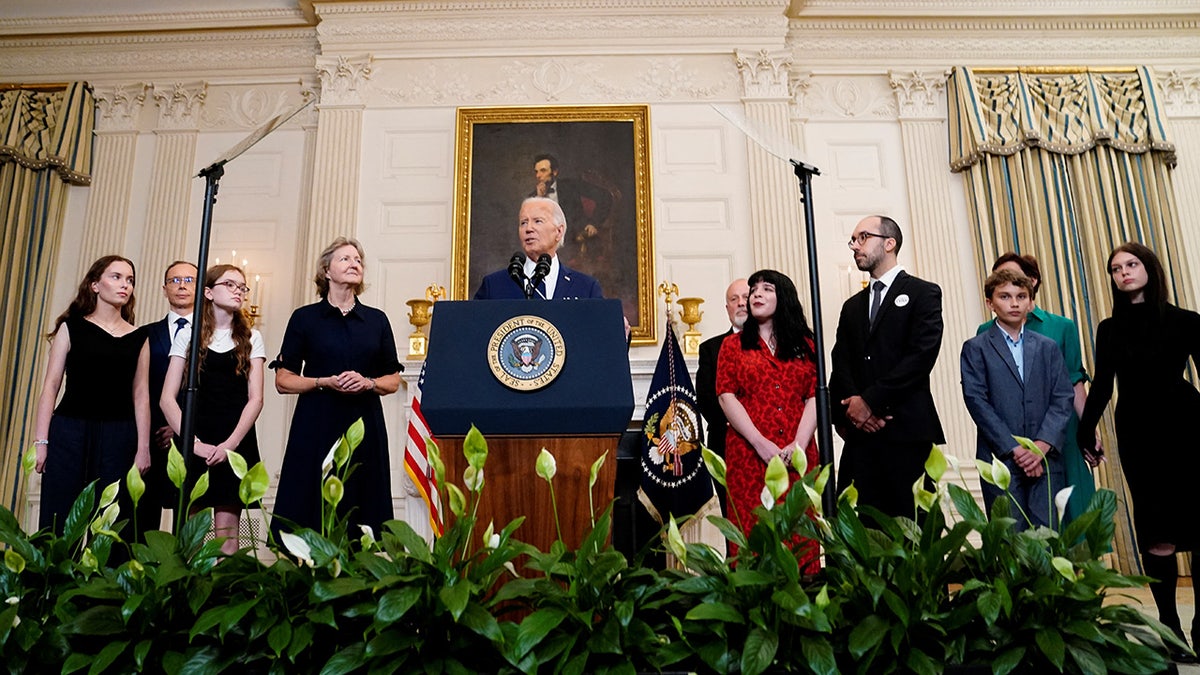

U.S. President Joe Biden speaks about the release of Paul Whelan, Evan Gershkovich, Alsu Kurmasheva, and Vladimir Kara-Murza, who were detained in Russia, during a brief event where some of their relatives are in attendance, at the White House. (REUTERS/Nathan Howard)
“This deal would not have been made possible without our allies Germany, Poland, Slovenia, Norway and Turkey. They all stepped up and they stood with us,” Biden said at the White House Thursday. “They stood with us, and they made bold and brave decisions, released prisoners being held in their countries who were justifiably being helped and provided logistical support to get the Americans home. So for anyone who questions whether allies matter, they do. They matter.”
Sullivan in a press briefing Thursday confirmed that no money or sanctions were part of the exchange.


Evan Gershkovich, Alsu Kurmasheva, and Paul Whelan smile aboard an airplane after being released from Russian prison in a historic prisioner swap on Thursday, August 1, 2024. (U.S. Government)
When asked if the historic prisoner exchange would incentivize hostile countries to arrest more Americans, Sullivan said, “It’s a question that we grapple with every time that we look at the hard decisions involved in one of these exchanges.”
CLICK HERE TO GET THE FOX NEWS APP
“It is difficult to send back a convicted criminal to secure the release of an innocent American. And yet, sometimes the choice is between doing that and consigning that person basically to live out their days in prison in a hostile foreign country, or in the hands of a hostile power. So, from our perspective, we have assessed and analyzed that risk, and we have judged that the benefit of reuniting Americans and bringing people home, and also of vindicating the idea that the American president and the American government are going to do what it takes to protect and secure the release of innocent Americans, that that benefit outweighs the risk. And that’s how we proceeded,” Sullivan said.

